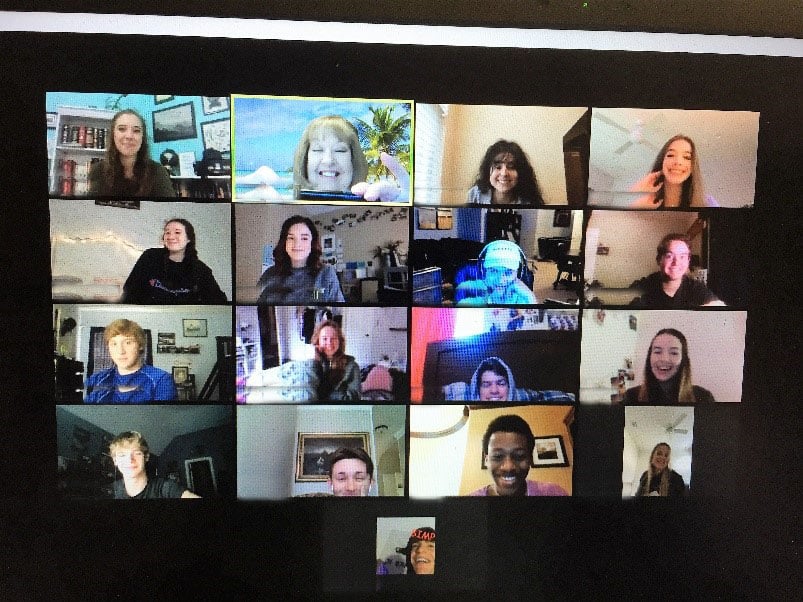
From the time our lives turned upside down a few weeks ago, we have all engaged in the hope that things will turn out all right, that our lives will return to normal, and that we will survive the disruptions.
My 11th graders are reading The Great Gatsby, a novel set in the tumultuous times of the Roaring Twenties, a time that left people’s heads spinning from rapid changes in society. Nick Carraway, the narrator, lives next door to a mysterious character, Jay Gatsby. Nick first sees Gatsby stretching out his arms with trembling intensity toward a green light on the dock across the bay from his ostentatious estate, and comes to believe that his neighbor has “some heightened sensitivity to the promises of life” and “an extraordinary gift for hope.” This hope is to rekindle a relationship with Daisy, Nick’s distant cousin, but she has married Tom Buchanan, a wealthy man from her same social strata.
Since the war’s end, Gatsby has reinvented himself; he has engaged all of his energies in creating “his Platonic conception of himself,” what he believes to be good and beautiful, and what he thinks Daisy wants. Remaking himself has involved him in activities of questionable legality. In fact, Nick admits that even though he disapproves of Gatsby himself, he comes to admire Gatsby’s unwavering belief in his hope to turn back time.
One of my students posted in Google Classroom:
“Gatsby wants to bring back all that Daisy meant to him by going back into the past and freezing time. Gatsby catches a falling clock "with trembling fingers" in order to put it back "in place" (86). It's almost as though Gatsby's whole plan to invite Daisy over for tea hinges on this particular image of his essentially stopping time from falling away from him, preventing it from escaping his grasp, and keeping it under his control, in place forever. Despite Gatsby's attempts to materialize his idea of Daisy by manipulating time, throughout the afternoon they spend together, there are moments where Daisy "tumbled short of his dreams" due to how unrealistic his hope is (95).”
The Great Gatsby is a tragedy. The characters wallow in their brokenness, leading “careless” lives that hurt and destroy one another. In the end, Nick comes to the conclusion that everyone believes in the green light, the limitless promise of their dreams and hopes. However, he is not at all sure that those dreams are attainable and, thus, “we beat on, boats against the current, borne back ceaselessly into the past.”
Bummer. Is that the best we can hope for?
Great books give us the opportunity to take what Nick calls “privileged glimpses into the human heart,” allowing us to see characters in many situations, from all nine of Dante’s circles of Hell to the heights of unselfish love and heroic sacrifice. We see characters that struggle with their human weaknesses, and we see others exhibit the nobility of displaying God’s image. Their sufferings and triumphs show us what it means to be fully human.
A student once wrote this note to me at the end of the final exam: “I am forever changed because of the novels we read this year.” It seems to me that these words signify a real hope for us teaching and learning remotely, a hope based not on circumstances or nebulous desires, but one centered on faith in a steadfast God. The issues we deal with during these uncertain times are most definitely challenging, but I am reminded that “we rejoice in our sufferings, knowing that suffering produces endurance, and endurance produces character, and character produces hope, and hope does not disappoint because God’s love has been poured into our hearts through the Holy Spirit who has been given to us” (Romans 5:3-5).
What an adventure to share these stories and participate with our students and parents in this hope (even if it takes place remotely)!


